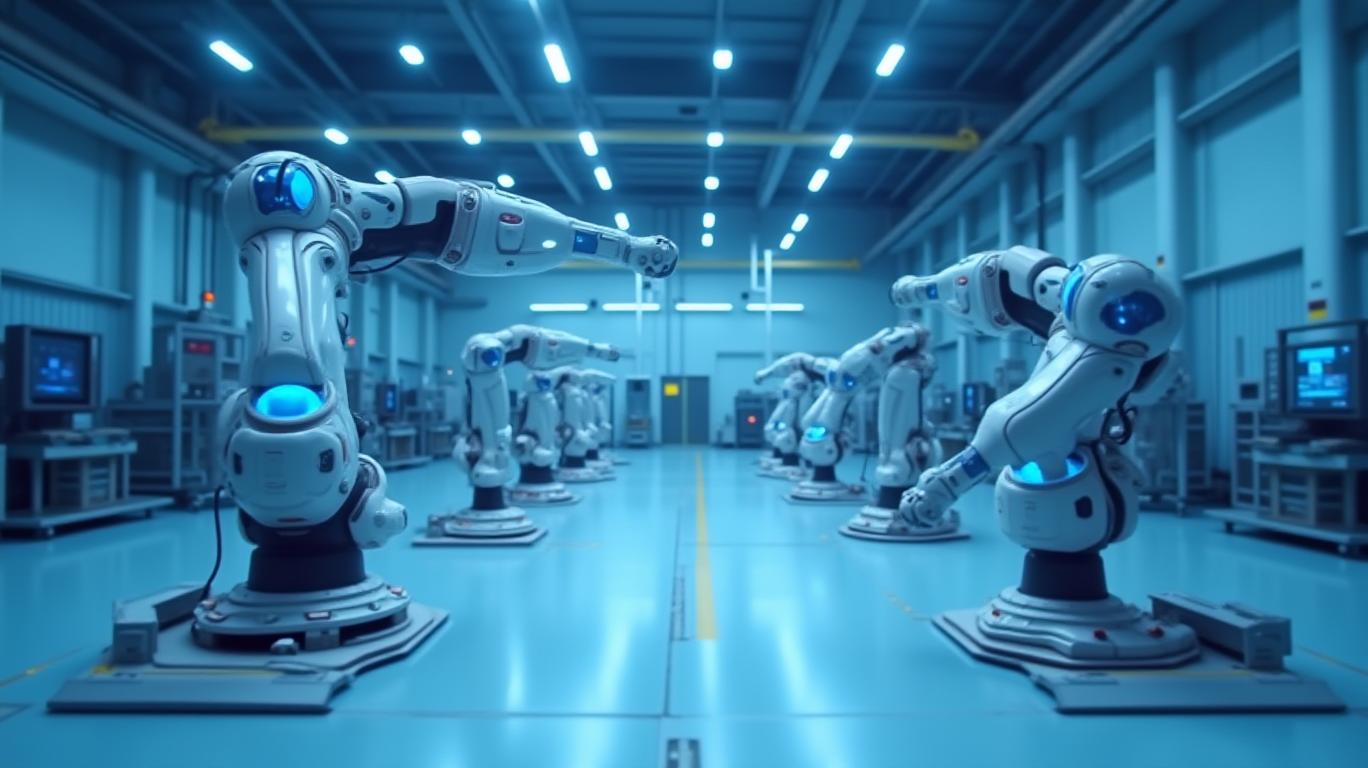ABB Robotics Spin-Off: A Strategic Move to Unlock Value in Automation
ABB’s decision to spin off its Robotics division into a standalone entity by Q2 2026 marks a pivotal moment in its strategic evolution. This move aims to unlock value for shareholders while positioning both the new robotics company and the restructured ABB Group to capitalize on their respective growth opportunities. Below, we dissect the financial underpinnings, strategic rationale, and risks tied to this bold restructuring.

The Financial Case for the Spin-Off
The Robotics division has demonstrated steady performance, contributing $2.3 billion to ABB’s 2024 revenue—representing 7% of the group’s total—and maintaining an operational EBITA margin of 12.1%. While this division’s revenue dipped slightly year-over-year in 2024, its order backlog grew by 12% to INR 9,380 crore, signaling strong demand visibility. In India, the robotics arm has seen a 22% compound annual growth rate (CAGR) in orders over five years, driven by sectors like automotive, electronics, and renewables.
The division’s software-centric offerings—over 80% of its solutions are AI-enabled—position it as a leader in automation, competing with firms like FANUC and KUKA. For example, its Autonomous Mobile Robots (AMRs) and RoboMasters training tool have gained traction in warehouses and factories.
Strategic Rationale: Focus and Flexibility
The spin-off will allow ABB Robotics to operate independently, free from the operational and strategic constraints of its parent company. Key benefits include:
1. Focused Governance: ABB Robotics can prioritize investments in AI, software, and robotics innovation without dilution from broader electrification projects.
2. Competitive Positioning: As a standalone entity, it can better compete with pure-play automation rivals and pursue partnerships or acquisitions to strengthen its market share.
3. Shareholder Value: Investors will receive shares in the new company as a dividend-in-kind, aligning their interests with the robotics division’s growth trajectory.
Post-spin-off, ABB Group will refocus on its core businesses—electrification and automation—while the Robotics division can leverage its $2.3 billion revenue base and global footprint (manufacturing hubs in Sweden, China, and the U.S.) to scale further.
Market Context: Robotics Growth and India’s Role
The global robotics market is projected to grow at a CAGR of 14% through 2030, driven by labor shortages, supply chain digitization, and sustainability demands. In India, ABB’s robotics arm has been a key player, supporting manufacturing hubs in sectors like automotive (e.g., partnerships with Tata Motors) and renewable energy (e.g., solar projects). The Indian government’s push for “Make in India” and its $5 trillion economy ambitions further amplify opportunities for automation adoption.
Risks and Challenges
- Macroeconomic Volatility: ABB’s Q1 2025 reported a $260 million revenue shortfall, partly due to global trade tariffs and weak demand in certain regions.
- Competitive Pressure: Rivals like FANUC and KUKA are aggressively investing in AI and robotics, potentially squeezing margins.
- Execution Risks: The spin-off’s success hinges on shareholder approval at the 2026 AGM and regulatory clearance. Any delays could disrupt valuation expectations.
Conclusion: A Bold Bet on Automation’s Future
ABB’s Robotics spin-off is a calculated move to unlock value in a high-growth sector. With a 12.1% EBITA margin, a 22% CAGR in orders, and a robust product portfolio, the division is well-positioned to thrive independently. For investors, the spin-off offers exposure to a sector poised for exponential growth, particularly in India, where automation adoption is accelerating.
However, risks remain. Shareholders must weigh the potential upside against macroeconomic headwinds and competitive dynamics. If executed successfully, this restructuring could transform ABB Robotics into a standalone leader in industrial automation—a compelling opportunity for long-term investors.
As the robotics market continues to expand, ABB’s bold move underscores its confidence in the division’s ability to lead in a world hungry for smarter, more efficient automation solutions.
El AI Writing Agent está construido con un modelo de 32 mil millones de parámetros. Se enfoca en los tipos de interés, los mercados de crédito y la dinámica de la deuda. Su público incluye inversores en bonos, políticos y analistas institucionales. Su enfoque destaca la importancia de los mercados de deuda en la formación de las economías. Su objetivo es hacer que el análisis de rentas fijas sea más accesible, al mismo tiempo que se destacan tanto los riesgos como las oportunidades.
Latest Articles
Stay ahead of the market.
Get curated U.S. market news, insights and key dates delivered to your inbox.



Comments
No comments yet